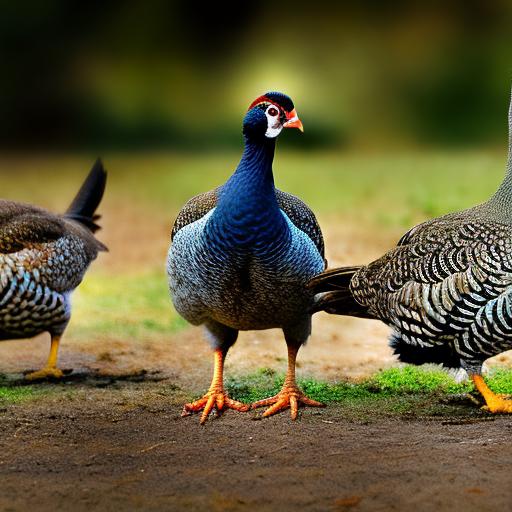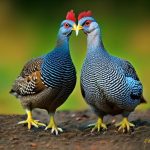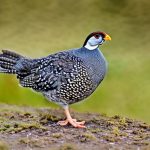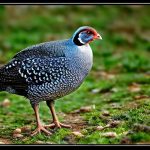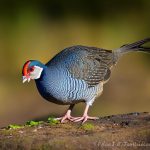Keeping guinea fowl with turkeys can be a rewarding experience for poultry enthusiasts. Both guinea fowl and turkeys are unique and interesting birds that can be raised together to create a diverse and dynamic flock. Guinea fowl are known for their insect-eating abilities and their loud, distinctive calls, while turkeys are prized for their delicious meat and beautiful plumage. By understanding the behavior and needs of both species, providing proper housing and shelter, ensuring proper nutrition, managing health and disease, and integrating them into a flock, poultry keepers can successfully raise guinea fowl and turkeys together. This article will provide a comprehensive guide to keeping guinea fowl with turkeys, covering all aspects of their care and management.
Key Takeaways
- Guinea fowl and turkeys can be kept together in a flock, but it’s important to understand their behavior and needs to ensure a harmonious environment.
- Guinea fowl and turkeys have different social structures and behaviors, so it’s important to provide proper housing and shelter that meets the needs of both species.
- Feeding and nutrition for guinea fowl and turkeys should be carefully managed to ensure both species receive the necessary nutrients for optimal health and growth.
- Managing the health and disease of guinea fowl and turkeys requires regular monitoring, proper sanitation, and access to veterinary care when needed.
- Integrating guinea fowl and turkeys in a flock can be successful with proper planning, gradual introductions, and monitoring of their interactions.
Understanding the Behavior and Needs of Guinea Fowl and Turkeys
Guinea fowl are highly social birds that thrive in flocks. They are known for their strong flocking instinct and can be quite vocal, especially when they feel threatened or when they are alerting the flock to potential danger. Turkeys, on the other hand, are also social birds but can be more docile and less vocal than guinea fowl. Understanding the behavior of both species is crucial when keeping them together. It’s important to provide enough space for both guinea fowl and turkeys to roam and forage, as they are both active birds that enjoy exploring their surroundings. Additionally, guinea fowl are excellent foragers and will eagerly consume insects, making them a valuable addition to any poultry flock. Turkeys, on the other hand, require a balanced diet that includes a high-quality turkey feed to support their growth and development. By understanding the behavior and needs of both guinea fowl and turkeys, poultry keepers can create an environment that meets the needs of both species.
Providing Proper Housing and Shelter for Guinea Fowl and Turkeys
When keeping guinea fowl with turkeys, it’s important to provide proper housing and shelter to ensure the well-being of both species. Guinea fowl are known for their roosting behavior and prefer to perch off the ground at night to avoid predators. Providing roosting poles or platforms in the coop will allow guinea fowl to exhibit this natural behavior. Additionally, guinea fowl are hardy birds that can tolerate a wide range of temperatures, but they still require protection from extreme weather conditions. Turkeys, on the other hand, require a well-ventilated coop with ample space to move around. They are susceptible to respiratory issues, so good ventilation is crucial to their health. Both guinea fowl and turkeys also require access to outdoor space for foraging and exercise. Providing a secure outdoor run or pasture area will allow both species to engage in natural behaviors such as dust bathing and foraging for insects and plants. By providing proper housing and shelter for guinea fowl and turkeys, poultry keepers can create a safe and comfortable environment for their birds.
Feeding and Nutrition for Guinea Fowl and Turkeys
Feeding and nutrition are essential aspects of keeping guinea fowl with turkeys. Guinea fowl are excellent foragers and will consume a wide variety of insects, seeds, and plants while free-ranging. However, they still require access to a balanced poultry feed to ensure they receive all the necessary nutrients for optimal health. Additionally, guinea fowl should have access to grit to aid in digestion, as they consume a lot of fibrous materials while foraging. Turkeys, on the other hand, require a high-quality turkey feed that is specifically formulated to meet their nutritional needs. Turkey poults require a higher protein content in their feed to support their rapid growth, while adult turkeys require a lower protein content to maintain their health. It’s important to provide access to clean, fresh water at all times for both guinea fowl and turkeys, as water is essential for digestion and overall health. By understanding the specific feeding and nutritional needs of both species, poultry keepers can ensure that their guinea fowl and turkeys receive a balanced diet that supports their health and well-being.
Managing Health and Disease in Guinea Fowl and Turkeys
Managing the health and preventing disease in guinea fowl and turkeys is crucial for maintaining a thriving flock. Both species are susceptible to various diseases and parasites that can impact their health and well-being. It’s important to monitor the flock regularly for any signs of illness or distress and to provide appropriate veterinary care when needed. Additionally, practicing good biosecurity measures can help prevent the introduction and spread of diseases within the flock. Providing a clean living environment, practicing proper hygiene, and quarantining new birds before introducing them to the flock can all help reduce the risk of disease transmission. Additionally, regular deworming and parasite control measures should be implemented to keep both guinea fowl and turkeys healthy. By staying vigilant and proactive in managing the health of guinea fowl and turkeys, poultry keepers can help ensure the long-term well-being of their flock.
Integrating Guinea Fowl and Turkeys in a Flock
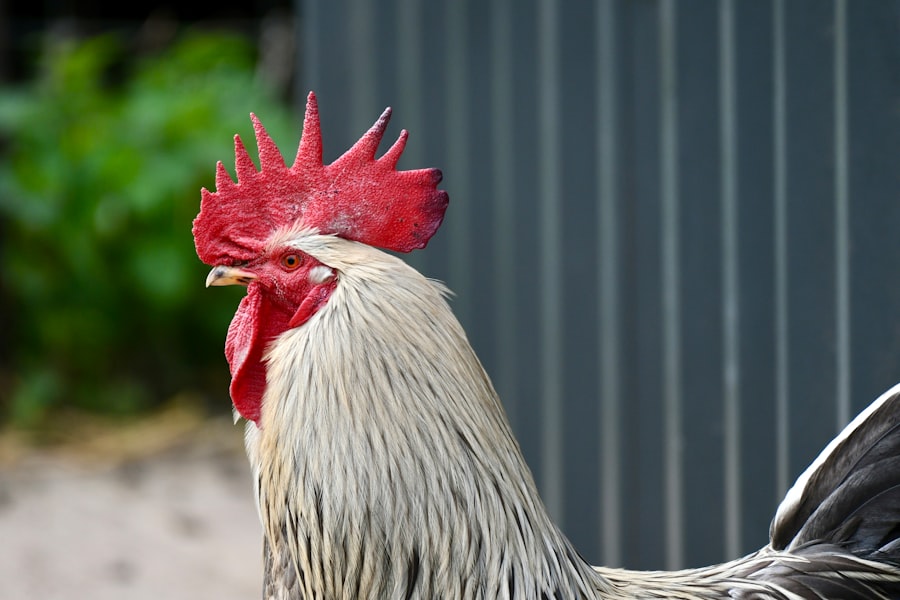
Integrating guinea fowl with turkeys in a flock requires careful planning and consideration of the unique behaviors of both species. Guinea fowl are known for their assertive nature and may initially establish a pecking order within the flock. It’s important to introduce new birds gradually and monitor their interactions to ensure that any aggression is kept to a minimum. Providing multiple feeding stations and ample space for both guinea fowl and turkeys can help reduce competition for resources and minimize potential conflicts within the flock. Additionally, providing hiding spots or shelters within the coop or outdoor area can give birds a place to retreat if they feel threatened or overwhelmed. By carefully integrating guinea fowl with turkeys in a flock, poultry keepers can create a harmonious environment where both species can thrive.
Benefits of Keeping Guinea Fowl with Turkeys
Keeping guinea fowl with turkeys offers several benefits for poultry enthusiasts. Guinea fowl are excellent at controlling insect populations, making them valuable additions to any flock. Their loud calls also serve as an effective alarm system, alerting the flock to potential threats or predators. Additionally, guinea fowl are low-maintenance birds that require minimal intervention when allowed to free-range and forage for food. Turkeys, on the other hand, provide delicious meat and beautiful plumage, making them a valuable addition to any homestead or small farm. By keeping guinea fowl with turkeys, poultry keepers can create a diverse and dynamic flock that offers both practical benefits and aesthetic appeal. Overall, keeping guinea fowl with turkeys can be a rewarding experience that allows poultry enthusiasts to enjoy the unique characteristics of both species while creating a thriving and harmonious flock.
If you’re considering keeping guinea fowl with turkeys, it’s important to understand the compatibility and care requirements of these birds. A related article on PoultryWizard.com discusses the importance of providing a suitable coop for turkeys. The article “Do Turkeys Need a Coop?” offers valuable insights into creating a safe and comfortable living space for turkeys, which can also be beneficial when considering housing guinea fowl alongside them. Check out the article here for more information on this topic.
FAQs
Can guinea fowl and turkeys be kept together?
Yes, guinea fowl and turkeys can be kept together in the same enclosure. They are both social birds and can coexist peacefully if introduced properly.
What are the benefits of keeping guinea fowl with turkeys?
Keeping guinea fowl with turkeys can help with pest control, as guinea fowl are known for eating insects and ticks. They can also provide an early warning system for predators, as they are very alert and vocal.
Are there any potential issues with keeping guinea fowl and turkeys together?
One potential issue is that guinea fowl can be aggressive towards smaller or weaker birds, so it’s important to monitor their interactions. Additionally, turkeys may be larger and more dominant, so it’s important to provide enough space and resources for both species.
What should be considered when introducing guinea fowl to a turkey flock?
When introducing guinea fowl to a turkey flock, it’s important to do so gradually and in a controlled manner. It’s best to introduce them when they are young and to provide plenty of space and hiding spots for the guinea fowl to feel safe.
What should be considered when housing guinea fowl and turkeys together?
When housing guinea fowl and turkeys together, it’s important to provide a spacious and secure enclosure with plenty of roosting space and hiding spots. It’s also important to provide separate feeding and watering areas to prevent competition.
Meet Walter, the feathered-friend fanatic of Florida! Nestled in the sunshine state, Walter struts through life with his feathered companions, clucking his way to happiness. With a coop that’s fancier than a five-star hotel, he’s the Don Juan of the chicken world. When he’s not teaching his hens to do the cha-cha, you’ll find him in a heated debate with his prized rooster, Sir Clucks-a-Lot. Walter’s poultry passion is no yolk; he’s the sunny-side-up guy you never knew you needed in your flock of friends!

